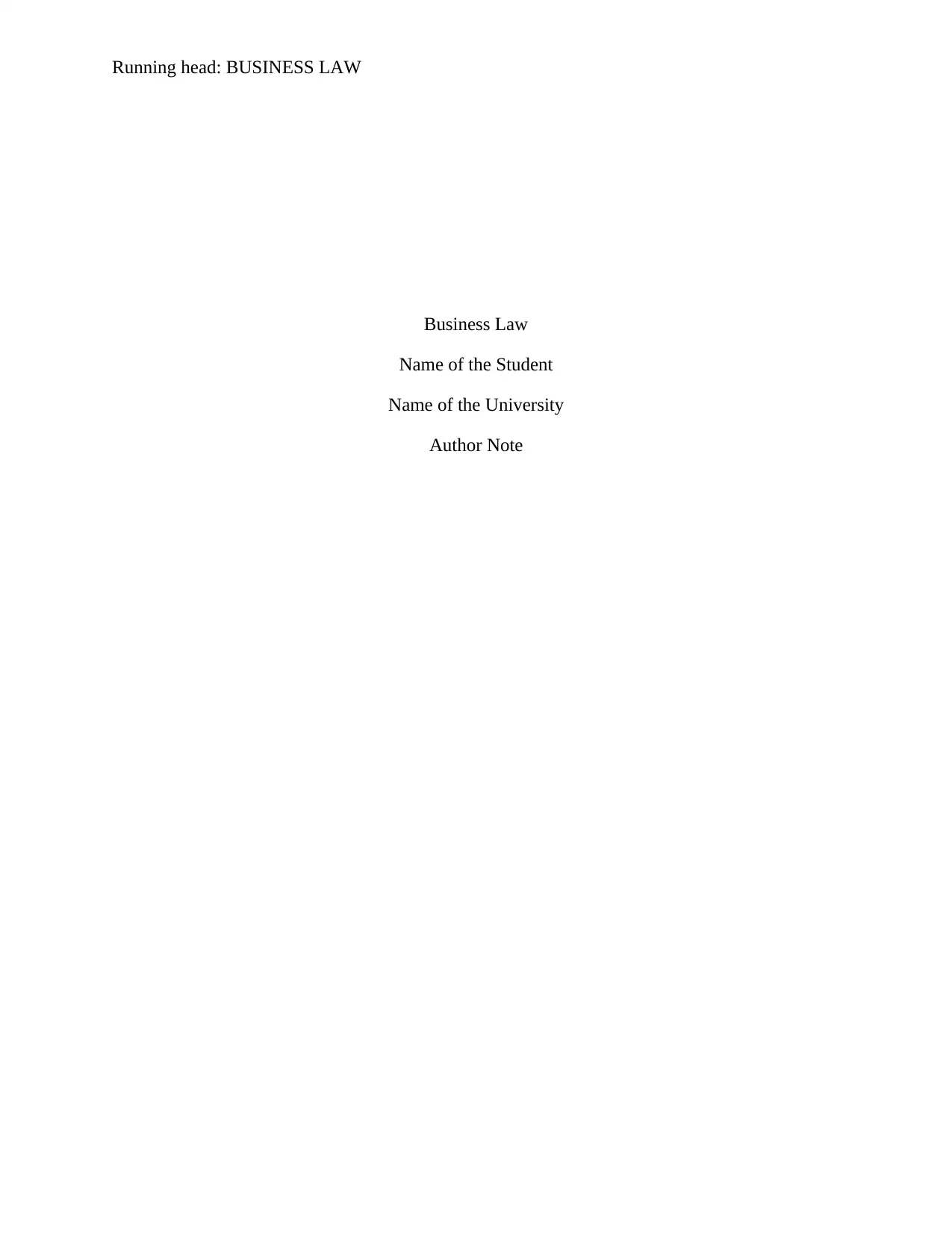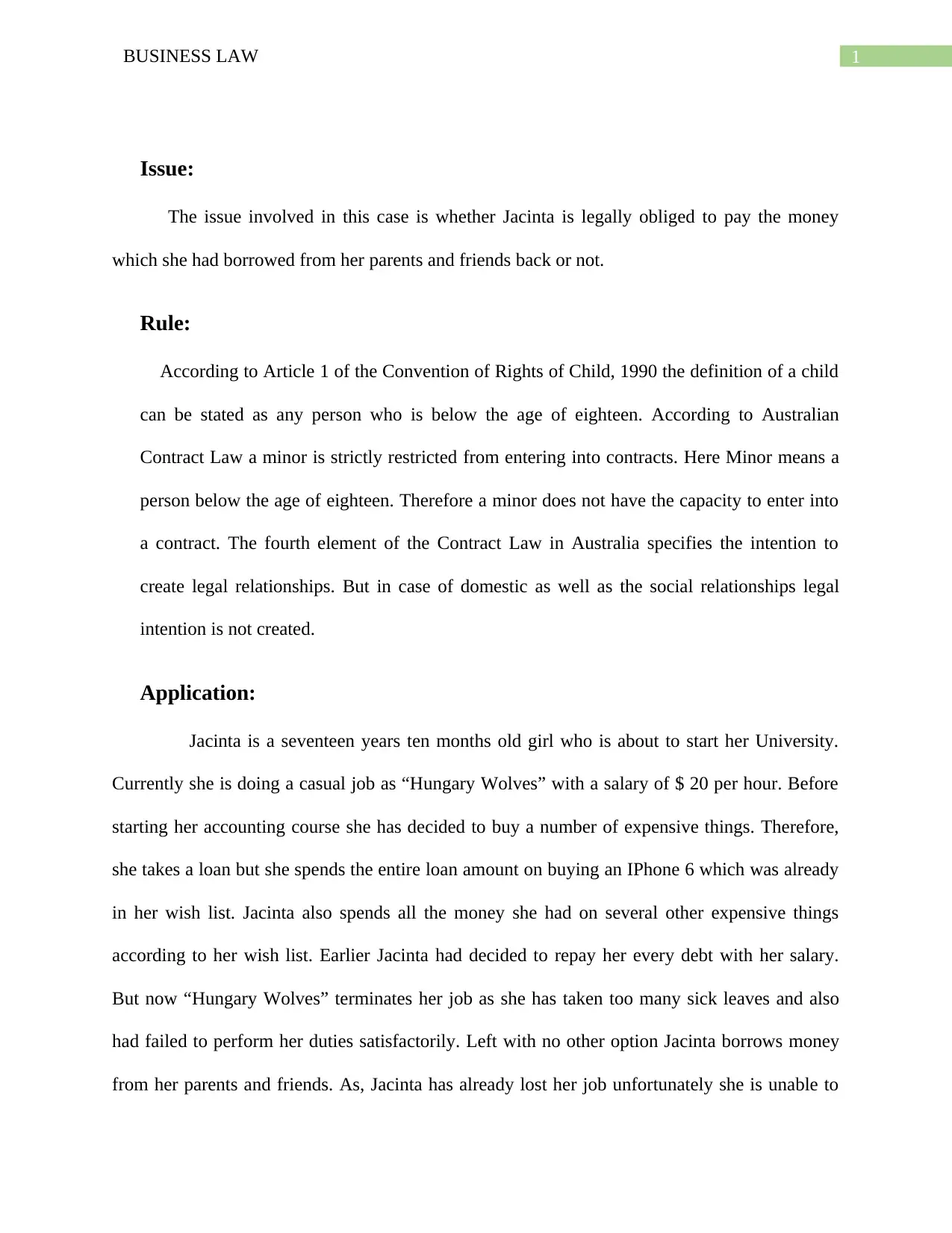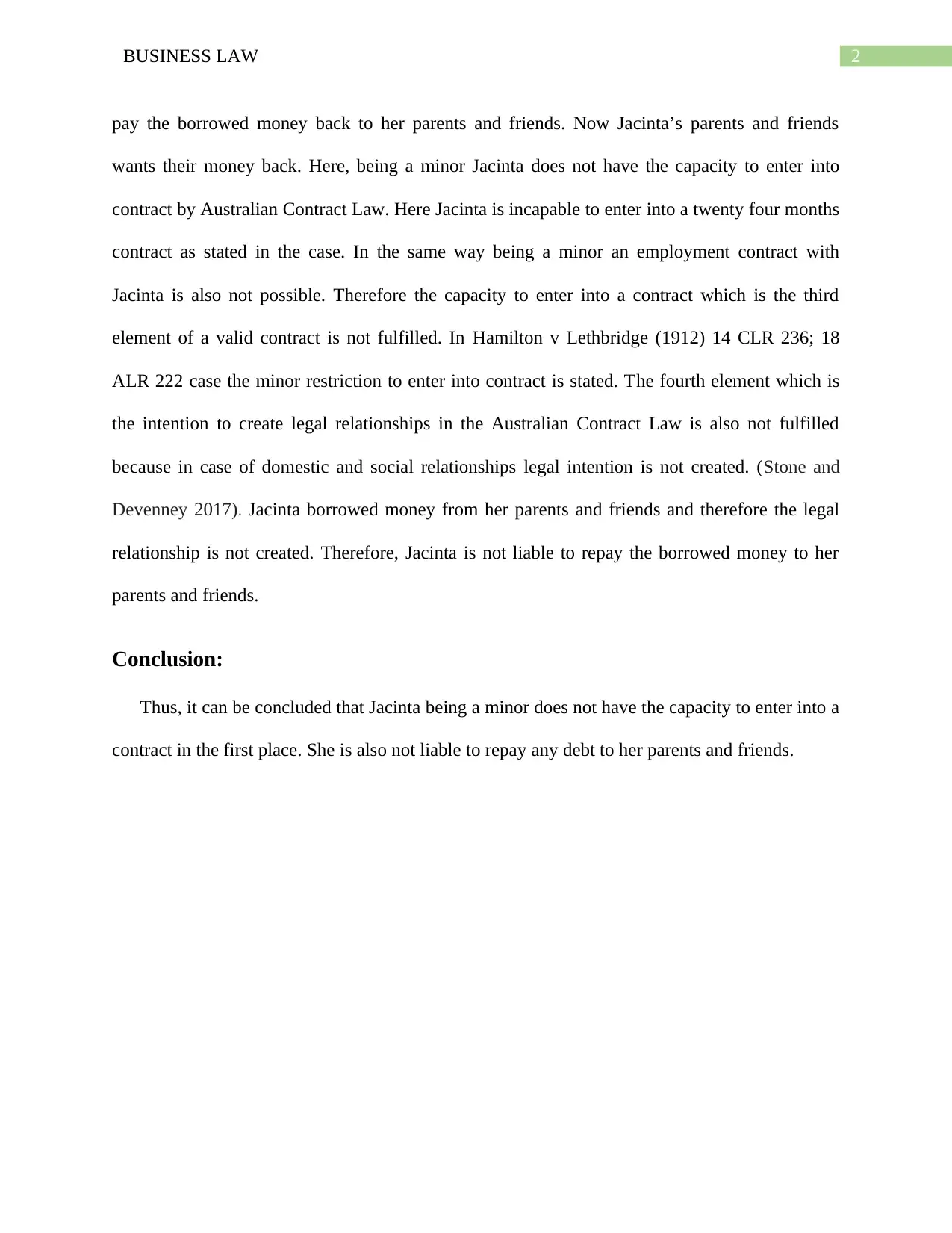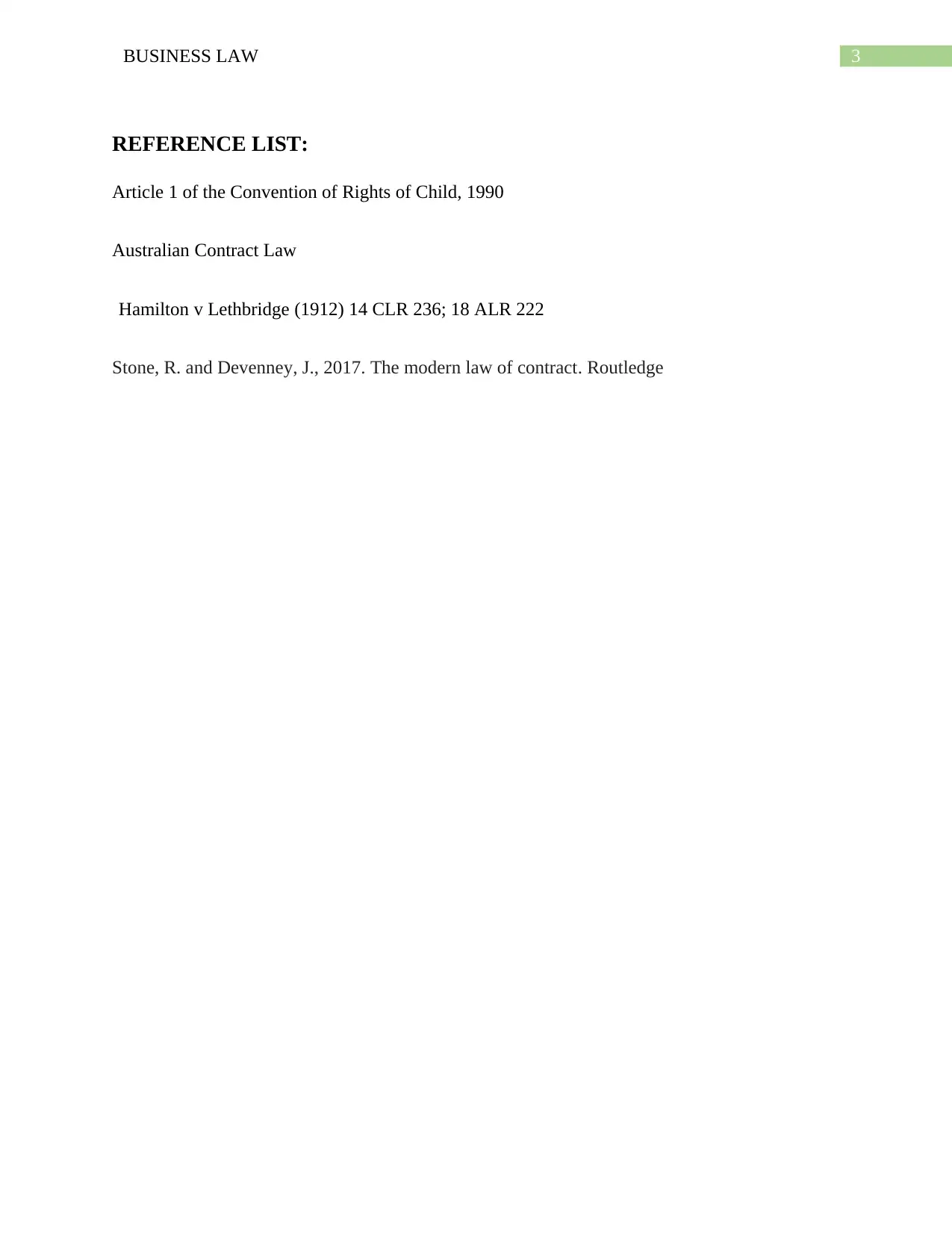Thomas More Law School Business Law Case Study: Jacinta's Contract Law
VerifiedAdded on 2023/01/17
|4
|622
|37
Case Study
AI Summary
This case study analyzes the contractual obligations of Jacinta, a 17-year-old student, who enters into several financial agreements before commencing her university studies. The case explores whether Jacinta, as a minor, has the legal capacity to enter into contracts for a loan with Wizard Short Term Finance, a phone contract with Telecon, and the purchase of a smartwatch from Watchcon. The analysis applies Australian contract law principles, including the definition of a minor, the restrictions on minors entering contracts, and the intention to create legal relations. The study references relevant legal precedents, such as Hamilton v Lethbridge, to determine Jacinta's liability to repay the borrowed money. The conclusion asserts that Jacinta, being a minor, lacks the capacity to form valid contracts and is therefore not legally obligated to repay the debts incurred.
1 out of 4










![[object Object]](/_next/static/media/star-bottom.7253800d.svg)